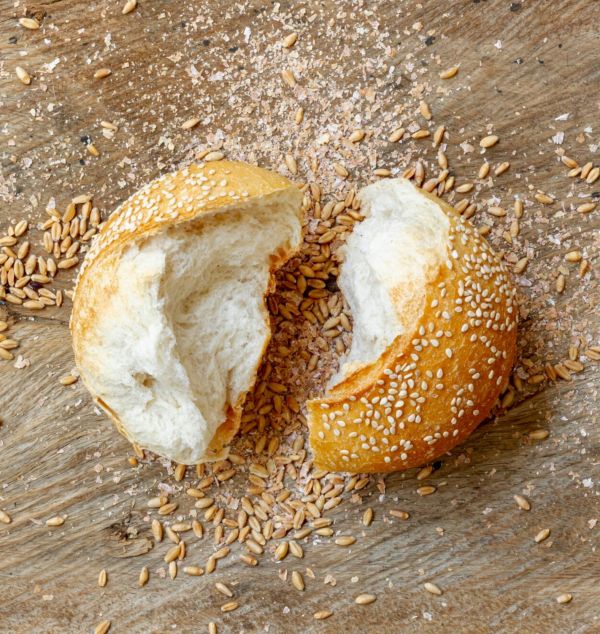The Poor Man of Assisi had great devotion to bread, because it reminded him of the living Bread that came down from Heaven for us, Jesus, who became Food for our hunger for love.
In the Sources there is a particular episode that underlines this:
"Even on major feasts, when there was an opportunity, he used to go for alms. Because, he said, in God's poor the word of the prophet 'man has eaten the bread of angels' is fulfilled'.
"The bread of the Angels is that which Holy Poverty collects from door to door, and which, asked for the love of God, for the love of God is bestowed, at the prompting of the Holy Angels".
Once, after asking for alms and receiving them, he turned to his brothers to "continually celebrate the Passover of the Lord, that is, the passage from this world to the Father, passing through the desert of the world in poverty of spirit, and as pilgrims and strangers and as true Jews" (FF1129).
Francis had a life centred on the gift of self by looking to Jesus, the Bread of Life, and had a special and profound respect for the heavenly Food. We find in his writings:
"Behold, every day he humbles himself, as when from the royal seat he descended into the womb of the Virgin; every day he himself comes to us in humble appearance [...] and as to the holy apostles he showed himself in the true flesh [...] so we too, seeing bread and wine with the eyes of the body, must see and firmly believe that this is his most holy body and blood living and true" (FF144).
And thinking of his now extended Order and desiring to have his form of life approved in perpetuity by Pope Honorius, God encouraged him with this revelation:
"It seemed to him that he had picked up some very small crumbs of bread from the ground, to distribute them to many hungry brothers around him. He was afraid that, in distributing them, such small crumbs might not fall from his hand. But a voice from above said to him: 'Francis, with all these crumbs, make a single host and give it to those who wish to eat'".
"While he was doing this, all those who did not receive the gift with devotion, or who, after receiving it, despised it, immediately distinguished themselves from the others, because they became lepers [...] The following day, while he was praying with great perseverance, he heard this voice coming from heaven: 'Francis, the crumbs you saw last night are the words of the Gospel; the host is the Rule, the leprosy is iniquity'".
A journey, that of Francis, in a Eucharistic key, which makes the living Bread his point of reference at every juncture.












